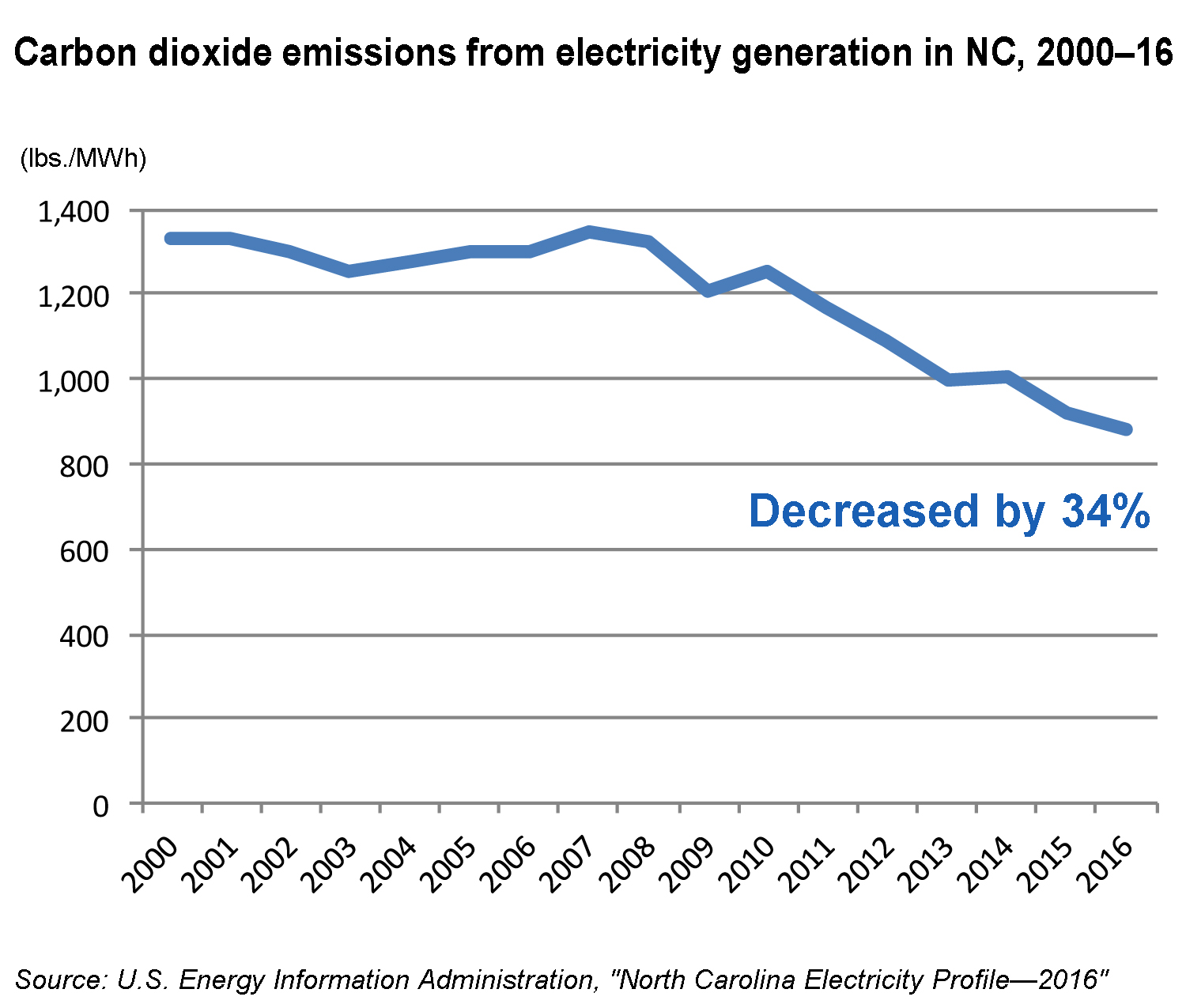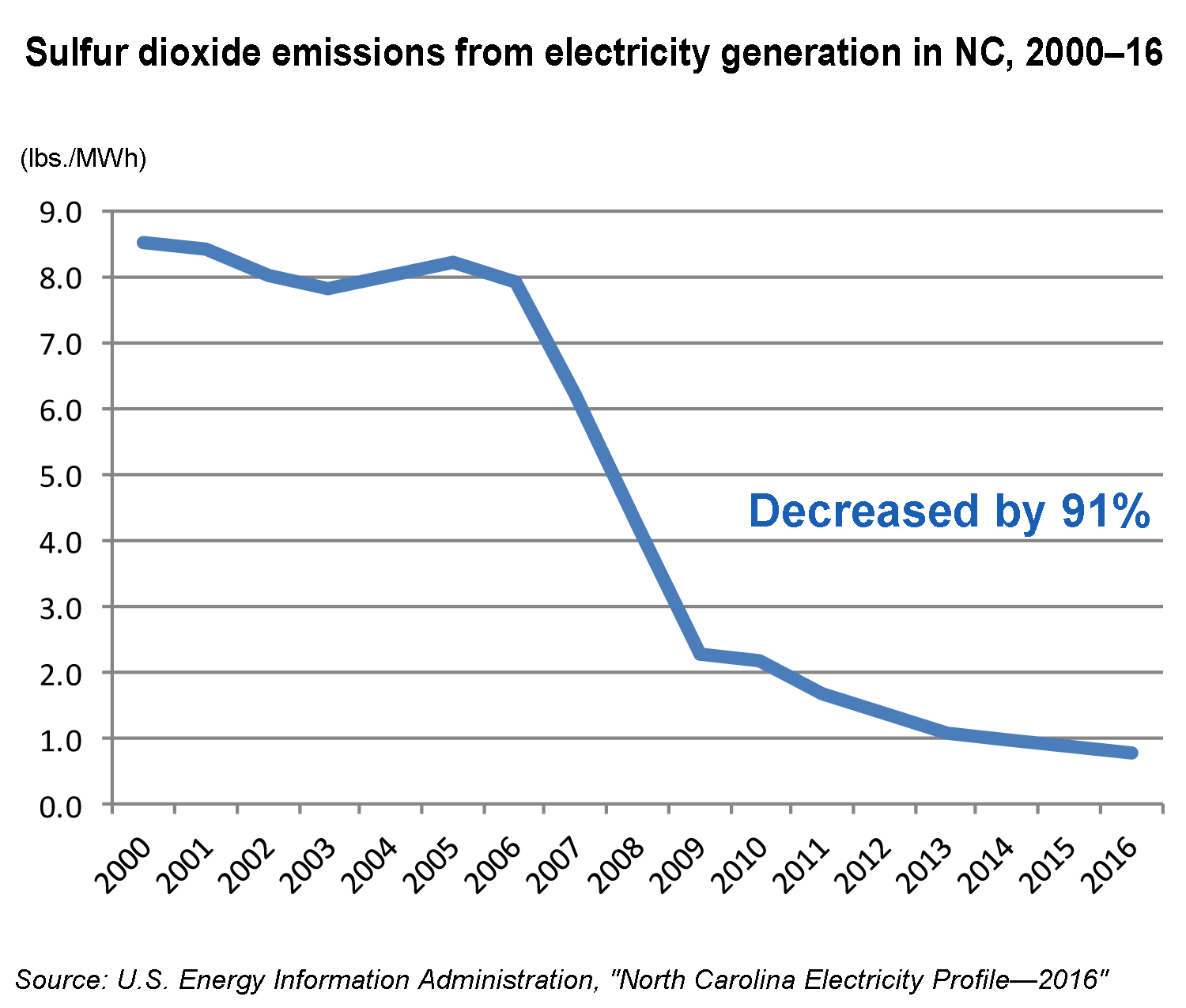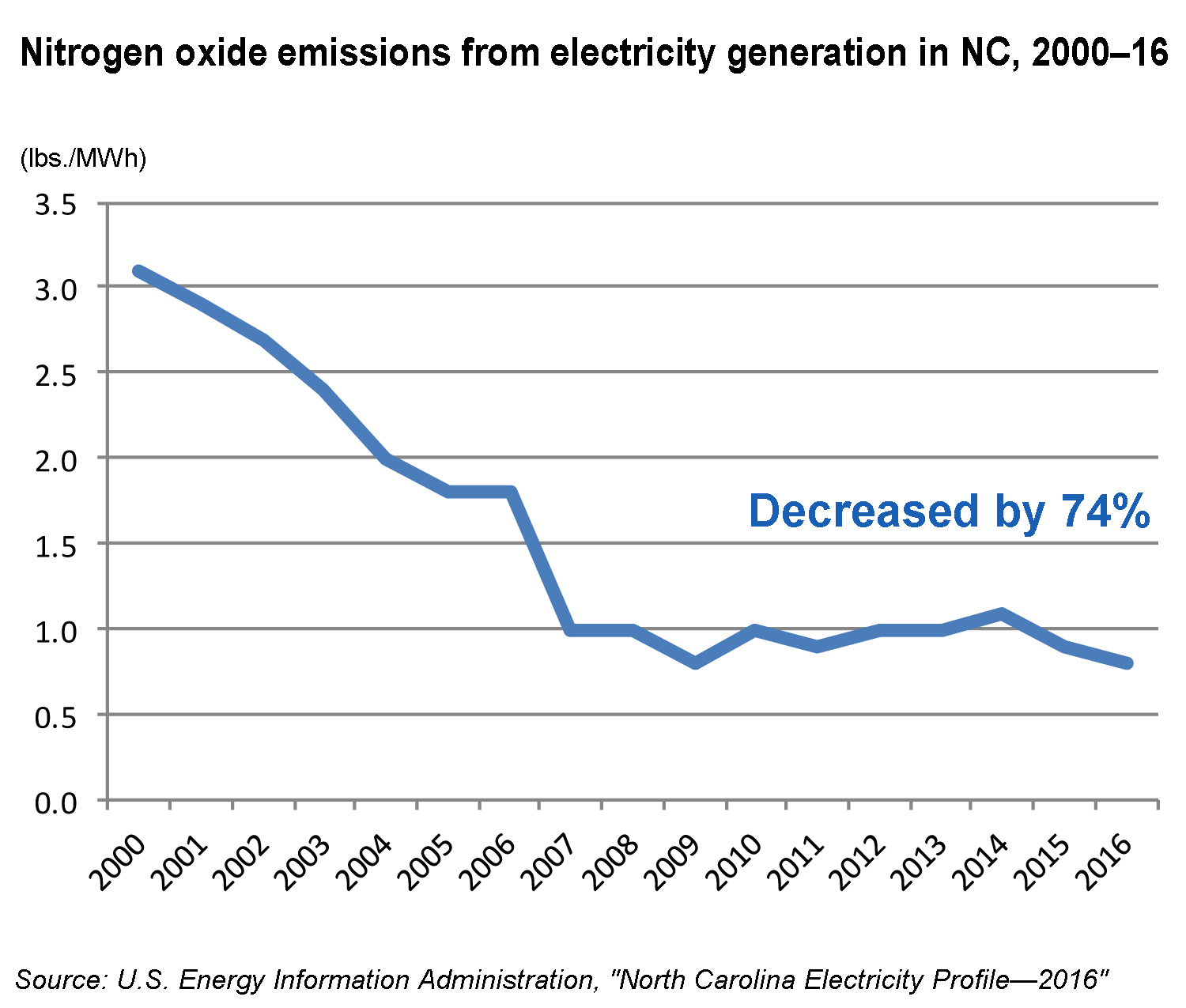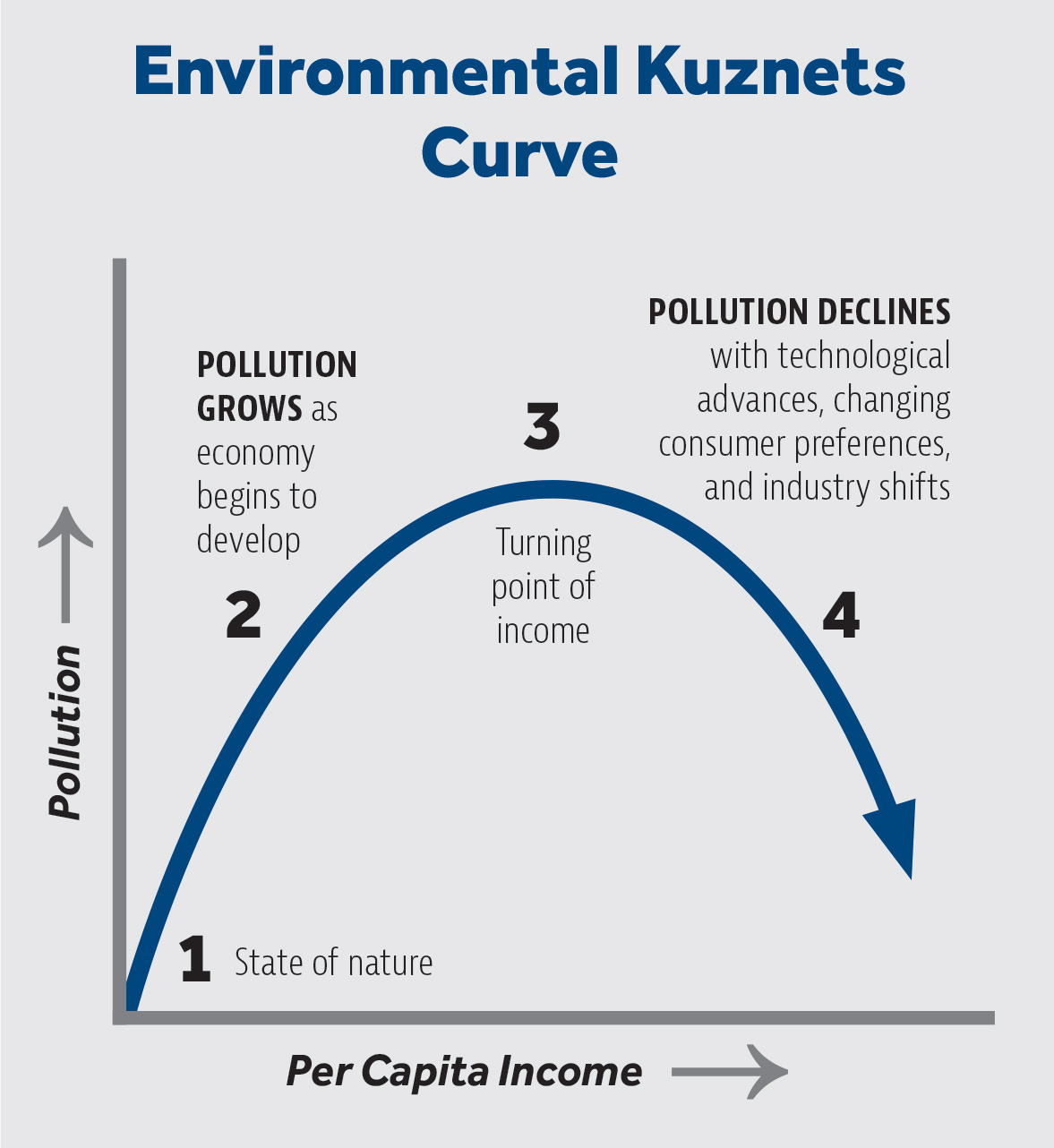With new data from the U.S. Energy Information Administration, I have updated the charts from my report last year on “The Market Forces Behind North Carolina’s Falling Emissions“:



These charts should be welcome news to people worried about emissions. But in order to be that, they’d first have to be news. Most people are under the impression that emissions are getting worse, out of control, an existential crisis. That’s the drumbeat we hear hourly from media, celebrity activists, leftists, green crony industries, and many politicians.
Few know that the United States and 34 other nations have accomplished what was previously (and obviously is still) thought impossible: the “decoupling” of emissions from GDP growth, overturning the conventional thinking that economic growth necessarily required a tradeoff of environmental health.
Here’s why: The reasons energy-based emissions have been falling all century in North Carolina and the U.S. are market-oriented, not government-driven:
- Technological change drives ever more efficient use of resources
- Consumer preferences favor less “carbon-intensive” goods and services
- An expanding service sector also results in lower emissions
- The fracking revolution has made clean-burning natural gas more price-competitive with coal, and electric utilities have increasingly opted for gas as a fuel source (and the other major market competitor with coal is nuclear, which has no emissions)
As I explained in my report,
Economists use something called the Environmental Kuznets Curve to describe this relationship. Initially developing economies necessarily produce greater pollution than the pre-existing state of nature. When societal wealth, life expectancies, and productivity reach a certain point, however, people begin valuing cleaner environments, while technological advances and post-development shifts in industry produce cleaner and more efficient outcomes.

The late economist Julian Simon, writing about pollution trends, put it this way: “as wealth increases, one of the goods that people are prepared to buy is a cleaner environment.”
Simon was writing about the trend toward cleaner environments in more free-market economies vs. the trend toward environmental degradation in socialist economies. Would that so many who profess to care about the environment who idealize socialism understood what the politics of removing property rights and profit motives actually does to the planet.




